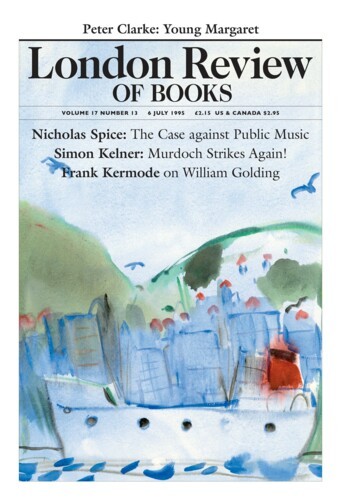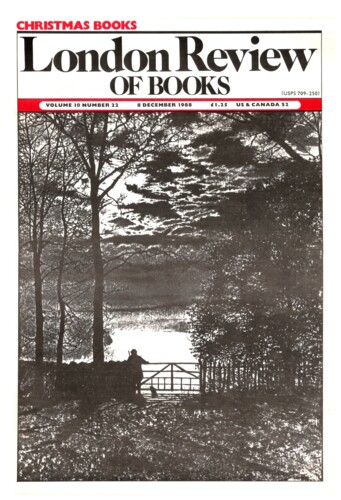Wordsworth’s Lost Satire
Nicholas Roe, 6 July 1995
Everyone knows that as a young English Jacobin Wordsworth visited France, becoming so intimately entangled in Revolutionary affairs that he might have remained there, eventually to be destroyed in the Terror. Later in life, though, he deliberately suppressed many aspects of his earlier career, in order to represent himself as an elect spirit – the prophet of nature, who had survived triumphantly undisfigured by the turmoil of contemporary history. A closer examination reveals a less impressive figure. Wordsworth was the revolutionary who abandoned Paris at the onset of the Terror; the democrat who was indifferent to the emancipation of slaves; the citizen reformer who remembered to forget state conspiracy and terrorism at the London treason trials of 1794. The French Revolution, which Wordsworth acknowledged as the most inspiring human cause in European history, became merely a subordinate scene in the drama of his self-justification.


